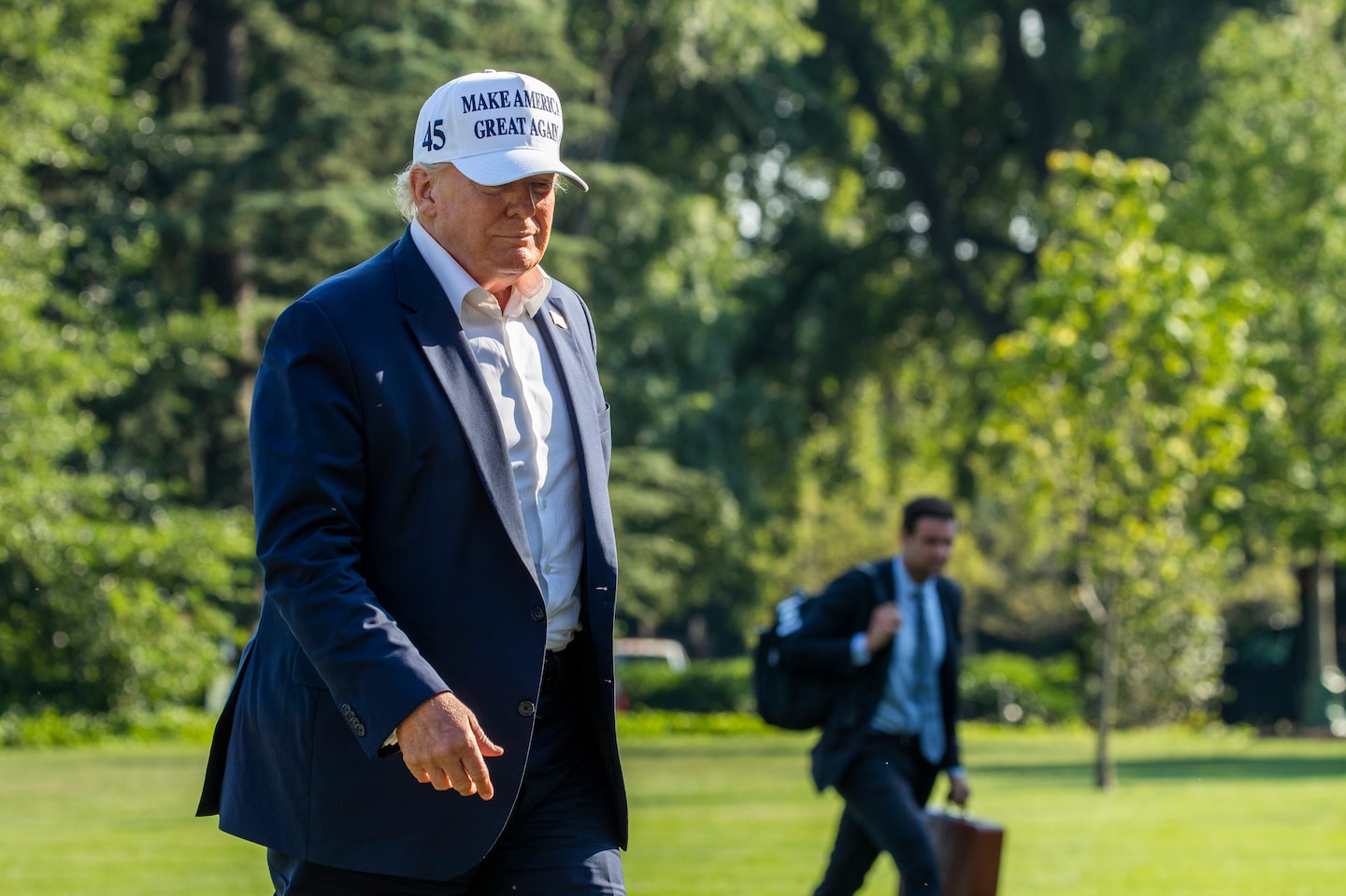Trump’s private business saw small uptick in revenue in 2019, new records show

On Friday, Eric Trump — the president’s son, who helps run the business day-to-day while his father is in the White House — issued a statement calling 2019 “one of the best years in the history of the Trump Organization.”
“Our businesses thrived with strong revenues while remaining underleveraged and maintaining very low levels of debt,” Eric Trump’s statement said. “We have an amazing company and I am very proud of what we accomplished in 2019.”
The forms give exact revenue figures for only some of Trump’s properties, including his hotels and golf clubs.
For other properties — including commercial buildings in Manhattan — Trump gives their revenue only in broad ranges, making it difficult to tell if the figures changed from year to year.
The forms show that, in 2019, Trump’s hotels saw revenue increase by about 2 percent, and his clubs reported about a 5 percent increase over 2018, according to an analysis by The Washington Post.
One of the company’s success stories has been TrumpStore.com, which it began after Trump took office, to sell items with the president’s name. The store’s offerings do not mention the word “president,” but there are T-shirts with the word “Trump,” paired with a stylized American flag.
The income from that one retail business increased 79 percent in 2019, to $930,869. The Trump Organization has not responded to questions about how it squares that business with its promise not to profit from the presidency.
The disclosures also show that Trump’s company refinanced one of its smaller loans in 2019: an $8 million loan from 2000, related to a Trump-owned mansion called Seven Springs in Westchester County, N.Y. The loan’s maturity date was extended from 2019 to 2029, and its interest rate was raised from 4 percent to 4.5 percent, the documents said.
Neither the Trump Organization nor its lender, Pennsylvania-based Bryn Mawr Trust, responded to questions about that loan on Friday.
The forms also note that former New York mayor Rudolph W. Giuliani, who acted as Trump’s personal lawyer during 2018 and 2019, worked free for Trump. The forms say that Trump does not believe that constituted a “gift,” since Giuliani was working “pro bono publico” — a term that usually connotes an attorney doing volunteer work for a nonprofit or other group that can’t pay typical lawyers’ rates.
Even if this was a gift, Trump’s form said, the value is impossible to know: “Mr. Giuliani is not able to estimate the value of that pro bono publico counsel; therefore, the value is unascertainable.”
The disclosures also showed that Trump received more than $1 million in 2019 from properties that no longer bear his name.
In Puerto Rico, for instance, Trump once was paid to lend his name to another company’s golf course — but the course went bankrupt. The Trump name was removed in 2015, and Eric Trump claimed being owed $927,000 in unpaid fees, according to the news site PolitiFact. In 2019, the financial disclosure forms say, Trump’s company received $750,000 in “contract payments” related to the Puerto Rico course.
And in Panama, the owners of the former Trump International Hotel took down Trump’s name in 2018 and turned the hotel into a Marriott. Trump’s company reported receiving $275,000 in “contract payments” related to that hotel in 2019.
The Trump Organization did not respond to questions about those payments.
The financial disclosure was released weeks later than normal, after the president received two extensions from the White House Counsel’s Office. After the second extension, a White House spokesperson said Trump “has a complicated report, and he’s been focused on addressing the coronavirus and other matters.”






